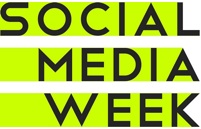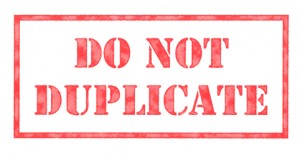Imitation Isn’t a Form of Flattery
Posted by Julie Spira on July 25, 2011 · 1 Comment
As the World-Wide-Web becomes more and more like the Wild-Wild-West with the addition of new social networks such as Google+ as well as the MySpace cyber face lift, it’s time to pause and take a look at how we are representing or mis-respresenting ourselves in the digital world.
If you ask any Hollywood agent, they’ll tell you there really aren’t any original ideas out there. To stand out in the crowded digital playing field, you need to have a unique voice and build your brand.
So what happens when you see your company logo on another’s profile on a social networking site? Perhaps they’ve found it on Google images or were just hoping you wouldn’t notice. Between Google alerts and your friends in the blogosphere, one can only hope that you’re keeping a digital eye on your brand.
Recently, I shared the story on Huffington Post of how my personal identity was copied on Twitter for the second time in two years. Twitter doesn’t take this lightly. They call it impersonation. I say, imitation isn’t a form of flattery.
In the first case, I notified Twitter. Five days later, the account of the copy-cat was suspended due to suspicious activity. In the second incident, I was fortunate that a social media friend spotted it upon first tweet. The person using my logo apologized and removed it from their profile.
Without further digital adieu, here are my recommendations on how to protect your brand identity.
- File a copyright registration for your logo at copyright.gov
- Create a Google alert for your personal name, company name, and tagline at google.com/alerts
- Create a search with your keywords on Hootsuite, Tweetdeck, or other social media software management tools
- File a trademark for your company name and logo at uspto.gov
- Take any digital dispute offline
- Report any blatant incidents to the social network
Social media attorney Adrian Dayton agrees with this approach. “Social networks take identity theft extremely seriously, most people don’t realize that if they are a victim the first step is to notify Twitter, Linkedin or Facebook immediately,” said Dayton.
Dayton knows about this first-hand as one of his clients, an NFL player, had noticed that someone had used his name and jersey number to create a fake account and started tweeting critical messages about the team. “All it took was a single email to Twitter and the offending account was removed. It may take more than that if you aren’t somebody famous, but most social networking sites will take action,” Dayton added.
At the end of the digital day one can only hope that our friends become each other’s social media police. We need to keep looking out for each other.
Have you experienced impersonation of your company or personal brand? Comments are welcome.
PICK MY BRAIN!
CONNECT WITH US!
TESTIMONIALS
Thank you again for doing such a terrific job speaking at my Writer's Program seminar at UCLA Extension on how writers can build their brand and establish their presence on the Internet. The students thought you were terrific and greatly appreciated you sharing your time and considerable expertise.
~Linda Marsa, journalist and instructor, UCLA ExtensionUCLA Extension
-

















